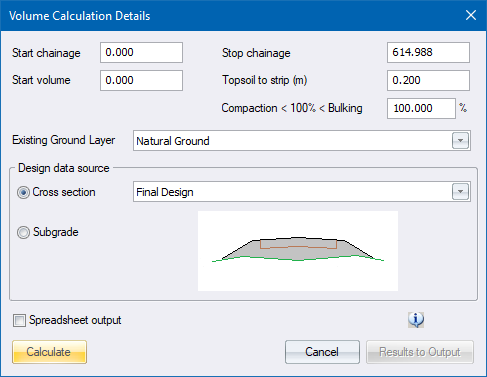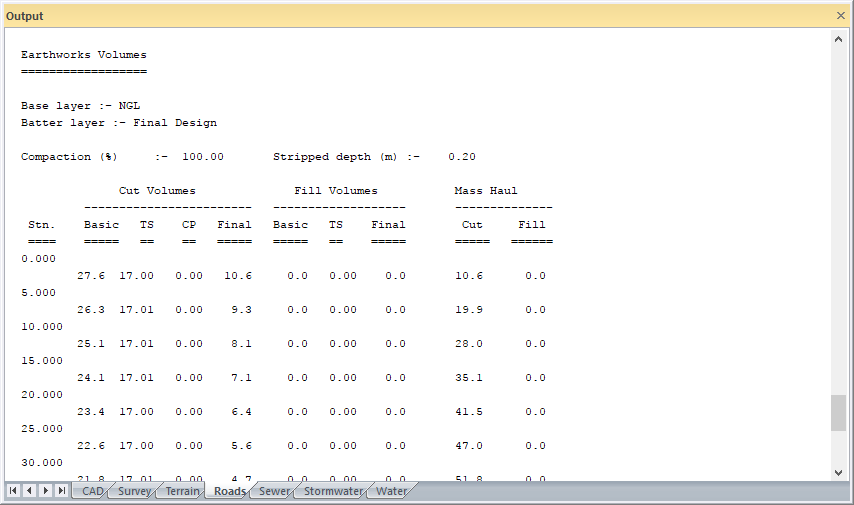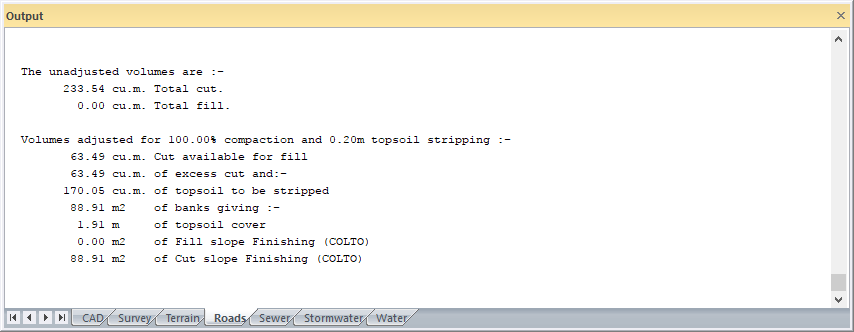 Note that the Output Window should be open.
Note that the Output Window should be open.Calculate masshaul volumes from cross-section areas.
|
Icon |
Command |
Shortcut Key |
Toolbar |
|
|
RD_AREAVOLMASSHAULVOLUME |
|
|
This function allows you to calculate volumes yielding a normal masshaul, with the imbalance between cut and fill as a result. The calculation can be broken into stretches with varying compaction factors and topsoil stripping depths, but yields a final global volume at the end.
The cross-section areas are automatically calculated between the specified base and batter layers.
A starting volume can be added to the overall run to allow for arbitrary items, such as borrowed material, bellmouths, culverts etc. A starting chainage is also given. Thereafter the routine cycles, asking for a depth of topsoil stripping, compaction factor and end chainage for each stretch. The volumes for each stretch are listed as they are calculated.
The compaction value applies to cut quantities, and is in percent. A value less than 100 gives compaction, and a value greater than 100 gives bulking. The topsoil depth applies to the depth of material that will be removed from the entire prism width of the road.
When the end chainage is reached, the option to print the final results should be selected.
 Note that the Output Window should be open.
Note that the Output Window should be open.
The results of this routine can optionally be stored in a Spreadsheet for subsequent analysis.
See Also Cumulative Volumes for an alternative calculation.
Procedure

Fill in the relevant data and click Calculate to continue.
If you selected the Spreadsheet output checkbox, the save window displays so you can select a file to write to. The drive and path automatically default to the last used drive and directory for this type of file.

The Volume Calculation Details are re-displayed.
Enter a new end chainage.
Change the topsoil stripping depth.

See Volume calculations for an explanation of the output.